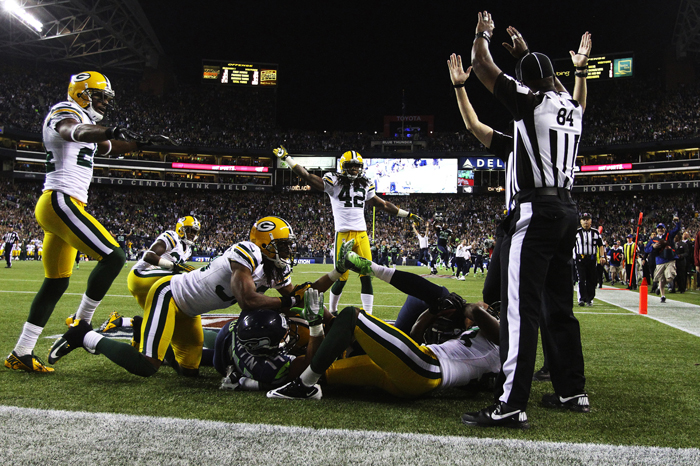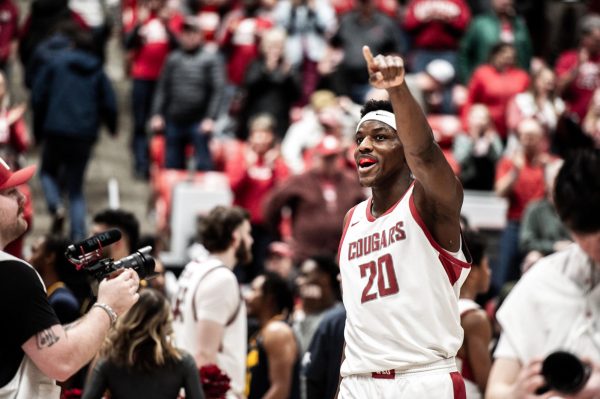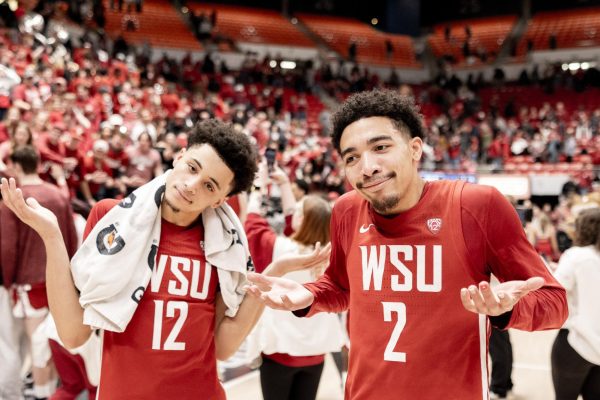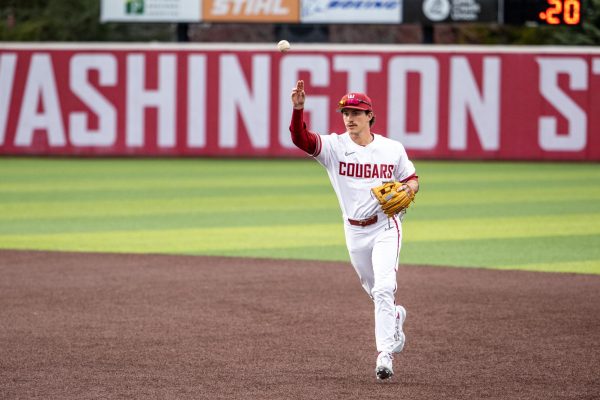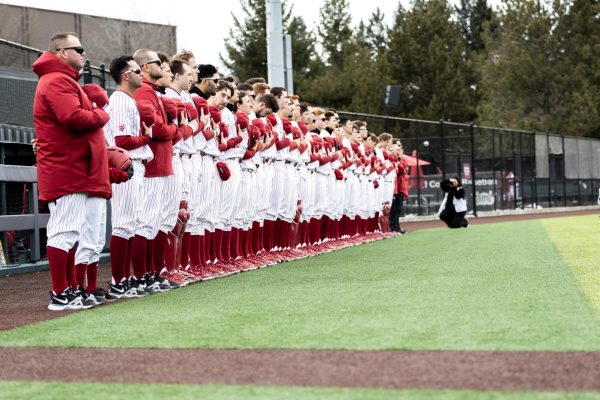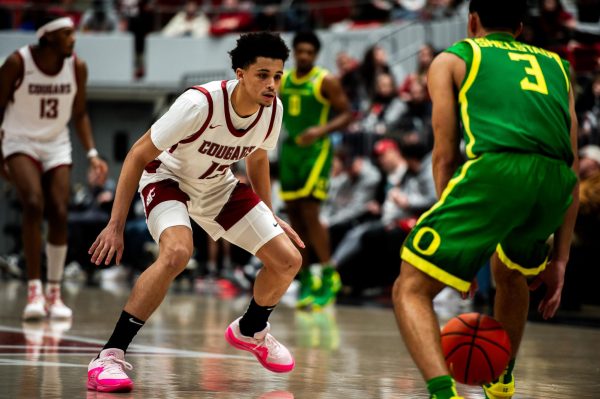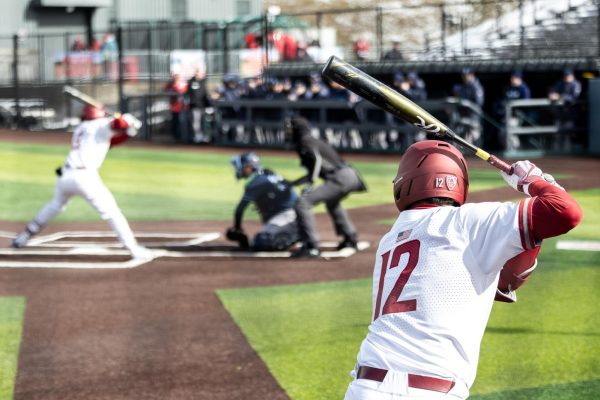Referees are ruining the game
Referees signal different calls after a game-ending play. It was finally ruled a touchdown, giving the Seahawks a 14-12 win to defeat the Green Bay Packers on Monday Night Football at CenturyLink Field, Sept. 24, 2012.
October 22, 2013
It takes a special kind of person to be an NFL referee. It’s one of the few jobs in which people expect perfection, yet the execution always has room for improvement.
Although the duties of referees are to enforce rules implemented by the NFL, an increasingly thicker rulebook has added pressure to referees to make more calls, and in turn, miss more calls.
Now more than ever, players are having less of an impact on the field and games are being decided based on third party judgment calls due to the added involvement from the referees.
As a fan, there is nothing worse than having a referee determine the outcome of a play, and in some instances, the game.
In Sunday’s matchup between the New England Patriots and the New York Jets, Jets kicker Nick Folk missed a game winning 56-yard field goal that was later nullified because of a new penalty on New England that was added in the offseason.
The new penalty, falling under the category of unsportsmanlike conduct, was pushing a teammate into the offensive formation, a rule added to protect player safety.
Patriots defensive lineman Chris Jones will go down in the history books as the first player to receive this penalty, which gave the Jets a fresh set of downs and another opportunity to kick a field goal, giving New York the victory.
Player safety is indeed an important issue to look at in the NFL, but when adding rules and referee involvement detracts from the quality of play on the field, many teams and fans are left disgruntled.
Increasing referee involvement and extra rules has not been the only issue recently. Knowledge of the rules and enforcing the right penalties has also raised some eyebrows this season.
In a Week 1 matchup between the San Francisco 49ers and the Green Bay Packers, officials wrongly enforced offsetting penalties on a third down play, which should have brought up fourth down.
Unfortunately, the referees ordered a replay of the down, and San Francisco scored a touchdown the next play winning the game 34-28.
Similarly, officials penalized the Minnesota Vikings 15 yards in a Week 3 game against the Cleveland Browns this season. Instead of charging the Vikings with a timeout when Head Coach Leslie Frazier used a challenge flag on a play that was unreviewable by a coach’s challenge, referees enforced an unwarranted 15-yard penalty.
Turning back the clock three years, in a 2010 contest between the Detroit Lions and Chicago Bears, referee involvement and interpretation of the rules cost Lions receiver Calvin Johnson a go-ahead touchdown late in the fourth quarter.
During the play, Johnson caught the ball in the end zone and maintained possession throughout the process of the catch before releasing the ball to go celebrate.
Despite Johnson having both feet down while maintaining possession throughout the entire process of the catch, the referee interpreted letting go of the ball to celebrate as a loss of control.
Consequentially, the Lions lost the game because it was one referee’s interpretation of the rules that determined the outcome.
As more rules keep pouring in and more calls are blown due to the increased number of things to watch out for, the small amount of integrity the NFL still has is dwindling by the minute.
With victories in the NFL coming at a premium, a team squandering a win because of added referee involvement, frequent rule updates and poor enforcement of penalties can prove to be extremely costly to a team’s season.
Year in and year out, playoff positioning has come down to a difference in just one game from one team to another. A difference that could make the Seattle Seahawks play a game on the road in the playoffs instead of at home.
Perhaps instead of adding rules each offseason, the NFL should spend some time subtracting and clarifying existing rules, which will lead to a simpler rulebook, better officiating and games determined by players’ performances on the field instead of subjective judgment calls.


